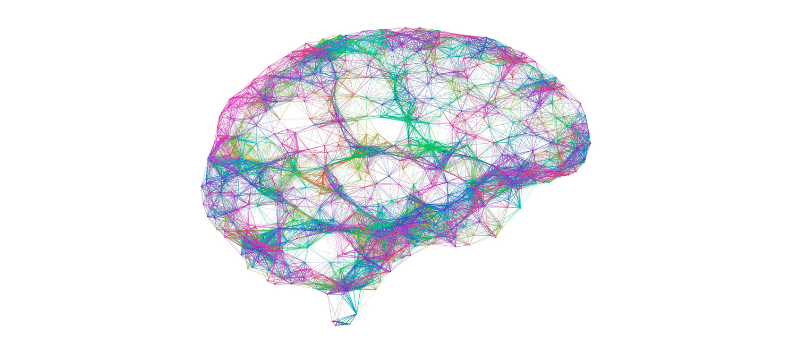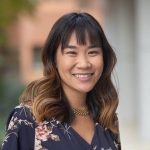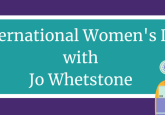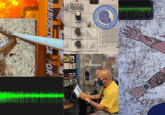Changing the status quo with BioTechniques’ Editor-in-Chief

 Michelle Itano is a cellular biophysicist, Assistant Professor of Cell Biology and Physiology, Editor-In-Chief of BioTechniques, and Director of the Neuroscience Microscopy Core at the University of North Carolina – Chapel Hill (NC, USA), where she develops and customizes state-of-the-art optical imaging and analysis applications for a wide range of scientific research. She utilizes innovative fluorescence microscopy methods – including super-resolution and simultaneous multi-plane imaging – to investigate how viruses, such as HIV-1, infect cells.
Michelle Itano is a cellular biophysicist, Assistant Professor of Cell Biology and Physiology, Editor-In-Chief of BioTechniques, and Director of the Neuroscience Microscopy Core at the University of North Carolina – Chapel Hill (NC, USA), where she develops and customizes state-of-the-art optical imaging and analysis applications for a wide range of scientific research. She utilizes innovative fluorescence microscopy methods – including super-resolution and simultaneous multi-plane imaging – to investigate how viruses, such as HIV-1, infect cells.
Here, she discusses the importance of mentoring throughout her career, shares useful resources and networks and the advice she would give to her younger self.
Please tell us your career story
- Age 18–21: Undergraduate double major in Biology and Archaeology from Washington University in St. Louis (MO, USA)
- Age 21–27: PhD in Cell and Developmental Biology, University of North Carolina, Chapel Hill (UNC; NC, USA)
- Age 27–32: Postdoctoral researcher, The Rockefeller University, New York (NY, USA)
- Age 32–33: Research Program Director and Director of the Neuroscience Microscopy Core, UNC
- Age 33 and ongoing: Assistant Professor in Cell Biology and Physiology and Director of the Neuroscience Microscopy Core, UNC
How have you found mentors throughout your career? What have you gained from these relationships?
Earlier in my career, I found mentors through academic channels (I worked in their labs or they were my professors) or through official mentorship opportunities (including those supported by networks organizations like The Association of Biomolecular Resource Facilities (ABRF), Global BioImaging, mentors/advisory committees listed on professional development or research grants).
More recently, mentorships have grown out of shared interests, often after meeting at a workshop or conference and following up after the event with one-on-one conversations and further collaborations. I text, email or talk with someone outside my institution almost every day, sharing and discussing current experiences, documents or ideas. While many of these interactions are informal, they are critical to creating a sense of belonging for me in my field and institution an. They help me address shared challenges and celebrate others’ successes.
My first advisor, Dr. Lois Abbott (University of Colorado, CO, USA), was an incredible mentor, who was awarded her PhD at the age of 49 after raising her five children. I would also like to remember my thesis advisor, Dr. Ken Jacobson (University of North Carolina School of Medicine, NC, USA), who passed away suddenly during the pandemic, whose mentorship continues to have a daily positive impact on my career.
What resources/networks have you found useful in your career, particularly as a woman in science?
Peer support networks have been critical to everyday success and creating a sense of belonging locally and with those with common interests and priorities in my field more globally. I have found career coaching to be incredibly supportive of creating a more balanced and prioritized career schedule through BetterUp, which was provided as a part of the Imaging Scientist grant from the Chan Zuckerberg Initiative.
I have also benefitted from leadership training provided by the Center for Faculty Excellence and TEAM ADVANCE program at UNC, most recently I was involved in a peer coaching group where we learn and practice coaching skills over the course of a year.
Additionally, because my field is so diverse, networks that help me to connect with others with common challenges and goals have helped me build relationships and avoid fragmentation and duplication of effort, and have provided leadership opportunities and opportunities to learn best practices and share experiences from others. Some of these include: ABRF, MADDSSci (Mid-Atalantic ABRF Chapter), Global BioImaging, BioImaging North America, PAIR-UP, the American Society for Cell Biology, Chan Zuckerberg Initiative grantee community, QUAREP-LiMi (Quality Assessment and Reproducibility for Instruments & Images in Light Microscopy), MBL (Marine Biological Laboratory) Course communities, Imaging Africa, Imaging Latin America, etc.
What are you most proud of in your career?
I am most proud of times when I have had an impact by providing support for someone’s research or professional development. Each moment someone is able to discover something that is new to them or their research area, which was enabled in some way by technology or shared expertise that we provide, is very special to me. I also value moments where I was able to help connect someone to another person or network that is able to help provide advice, opportunities or support that enables them to work in a way that supports their key values and goals.
What are you most excited about in the years to come, especially around women in science?
I am excited by the conversations that are happening regarding shared leadership and service to communities and the questions that I hear people raising that are changing the status quo. I think that recognition of the value of roles that provide service to our communities is growing. If we are able to align expectations, increase transparency and increase the recognition and value for those who enhance research fields by mentoring, coaching and growing our communities, the positive impacts will be felt by all.
What are the best and most challenging aspects of your job?
The best aspect of my job is the variety. I get to support an incredibly wide range of research topics and interact with people with different backgrounds and goals each day. I enjoy getting to address new challenges and opportunities constantly, and relying upon the support and shared knowledge of those in my networks and communities each day. The most challenging part is effective time management and prioritization that is in line with my core values and goals. Another challenge is the lack of stable funding for those in service roles, either in technology-based roles or those building and maintaining network communities.
Advice to your younger self?
I would tell myself to focus less on areas where I could grow and appreciate that there is value in working within your strengths and interests that already exist. Take time to listen to and build relationships with those who support you and know you well, and don’t amplify or give energy to the voices of your harshest critics.





